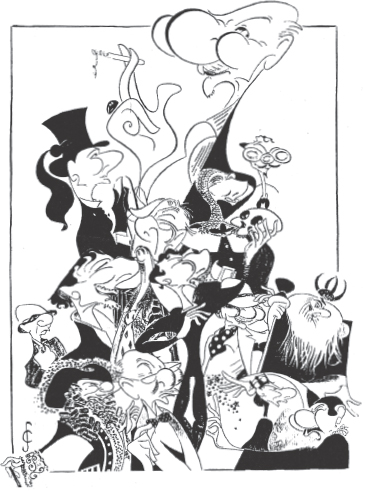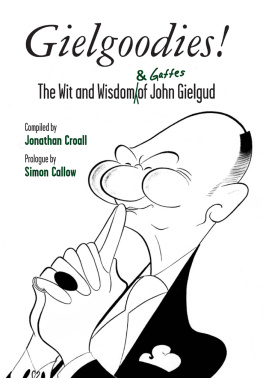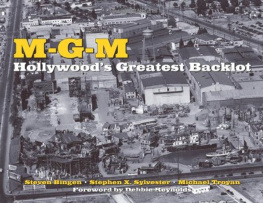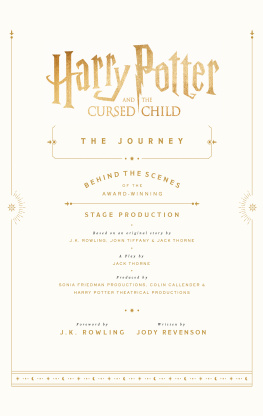Gielgoodies!
Other books by Jonathan Croall
The Coming of Godot: A Short History
of a Masterpiece (Oberon)
Peter Hall's Bacchai:
The National Theatre at Work (Oberon)
John Gielgud: Matinee Idol to Movie Star
Sybil Thorndike: A Star of Life
Buzz Buzz! Playwrights, Actors and Directors
at the National Theatre
Hamlet Observed:
The National Theatre at Work
Inside the Molly House:
The National Theatre at Work
Don't You Know There's a War On?
Voices from the Home Front
Neill of Summerhill: The Permanent Rebel
All the Best, Neill: Letters from Summerhill
Preserve or Destroy:
Tourism and the Environment
Sent Away (novel)

Compiled by
Jonathan Croall
Prologue by
Simon Callow
OBERON BOOKS
LONDON
First published in 2012 by Oberon Books Ltd
521 Caledonian Road, London N7 9RH
Tel: +44 (0) 20 7607 3637 / Fax: +44 (0) 20 7607 3629
e-mail:
www.oberonbooks.com
Compilation copyright Jonathan Croall, 2012
Prologue copyright Simon Callow, 2012
Jonathan Croall is hereby identified as author of this work in accordance with section 77 of the Copyright, Designs and Patents Act 1988. The author has asserted his moral rights.
Cover illustration and illustrations on pages viii, 1 and 95 copyright Clive Francis, reproduced by permission of the artist; illustration on page 125 copyright Gary, reproduced by permission of The Sunday Times / NI Syndication; illustration on page 103 copyright Trog, reproduced by permission of the artist; illustration on page 133 copyright James Ferguson, reproduced by permission of the artist; illustrations on pages 33 and 87 copyright Ronald Searle/The Sayle Agency.
The publisher has made every effort to trace the copyright holders of all images reprinted in this book. Acknowledgement is made in all cases where the extract source is available, but we would be grateful for information about any extracts where sources could not be traced.
You may not copy, store, distribute, transmit, reproduce or otherwise make available this publication (or any part of it) in any form, or binding or by any means (print, electronic, digital, optical, mechanical, photocopying, recording or otherwise), without the prior written permission of the publisher. Any person who does any unauthorized act in relation to this publication may be liable to criminal prosecution and civil claims for damages.
A catalogue record for this book is available from the British Library.
HB ISBN: 978-1-84943-448-5
EPUB ISBN: 978-1-84943-586-4
Printed and bound by Replika Press PVT Ltd, India.
Visit www.oberonbooks.com to read more about all our books and to buy them. You will also find features, author interviews and news of any author events, and you can sign up for e-newsletters so that you're always first to hear about our new releases.
Sources and Acknowledgements
T he majority of the items included here come from the two hundred interviews I conducted for my two biographies Gielgud: A Theatrical Life (2000) and John Gielgud: Matinee Idol to Movie Star (2011). For both books I had regretfully to exclude a good many jewels, so I welcome the opportunity to record them for posterity. I am grateful once again to all those many people who relished passing on to me so many gems.
Several items have been taken from Gielgud's letters, many unpublished, and from interviews he gave to journalists. I have indicated the source at the end of each item, using the following code: L = Letter, I = Interview, M = Memoir, B = Biography, D = Diary, U = Unknown, S = Several sources. All other items were given to me personally, either during my interviews or, in a few cases, by letter or e-mail.
I am grateful to everyone who responded to my requests for contributions, which were published in the Stage, the Equity Journal and the Daily Telegraph. I must also thank the trustees of John Gielgud's estate for permission to quote from his letters and other copyright material, and the following for the cartoons: Surra (page 17), Nerman (27), Ronald Searle (33 and 87), Nona (55), Vicky (63), Clive Francis (95), Trog (103), Gary (125) and Ferguson (133).

Clive Francis
Introduction
I think an actor who is too solemn about his work is really rather a bore.
J ohn Gielgud was not just a great actor: he was also a formidable wit, a brilliant raconteur and a very naughty boy.
He was, in more senses than one, a man of many parts. In researching my two biographies of Gielgud, I gradually discovered a fascinating mixture of elements in his absorbingly complex personality. There was first and foremost the sensitive, intelligent and dedicated man of the theatre, determined to perfect his art and serve his public. There was also the mercurial director with the butterfly mind, prone to test his actors patience to the limit with his continual, often bizarre changes of mind.
But I also encountered a deliciously flippant and wicked side to his nature. It was to be found in his perennial love of scandal and gossip, his schoolboy delight in sexual and scatological jokes, his lightning wit and bawdy humour, his scurrilous portraits of his friends and colleagues, and his delight in language in general and puns in particular. Such qualities are to be greatly treasured. But he was also cherished for those gaffes, bricks and clangers affectionately known as Gielgoofs or, more commonly, Gielgoodies, which are here celebrated in all their glory.
The bricks that he dropped were legion, and a direct consequence of his quicksilver mind and wildly impulsive nature. Somehow he lacked that useful skill of self-censorship that most of us have, that crucial ability to think before we speak: no sooner had a thought entered his brain than it came tumbling out of his mouth. It was a lifelong habit that prompted Tennessee Williams to label him that famous London Brick Factory, while Kenneth Tynan suggested he had dropped bricks enough to re-build the Globe theatre. Gielgud had his own image, confessing to Emlyn Williams: I seem to have dropped enough bricks to build a new Wall of China. Well, so long as I don't offend, I don't mind making a fool of myself.
Amazingly, he didn't generally offend. His friends, family and colleagues so loved or admired him, they not only tolerated his appalling tactlessness, but actually relished it. Paul Scofield told me: If you don't know him his mots can sound cruel and empty, whereas in his mouth they are innocent and inconsequential and very funny. Most of those who worked with him at one time or another were his victims, though not, I think, his targets, and there can be few who had not forgiven, if not forgotten, by the end of the day. His view is supported by Judi Dench, who suggested to me that his bricks came out of an incredible shyness and were unintentional. Alec Guinness, who remembered him being hopelessly tactless and unintentionally cruel, said he believed the gaffes were entirely forgivable, because they sprang spontaneously from the heart without a glimmer of malice.















